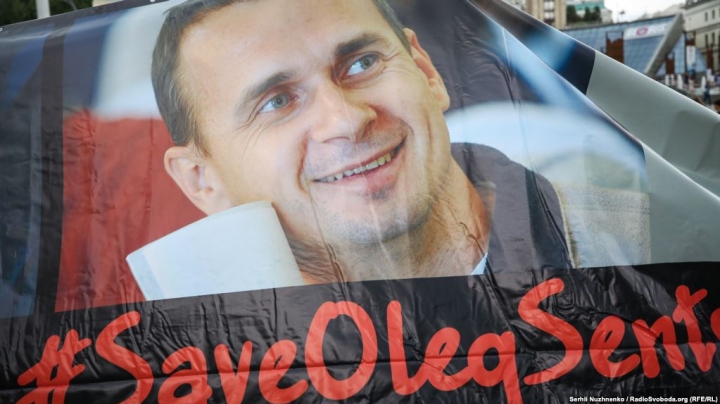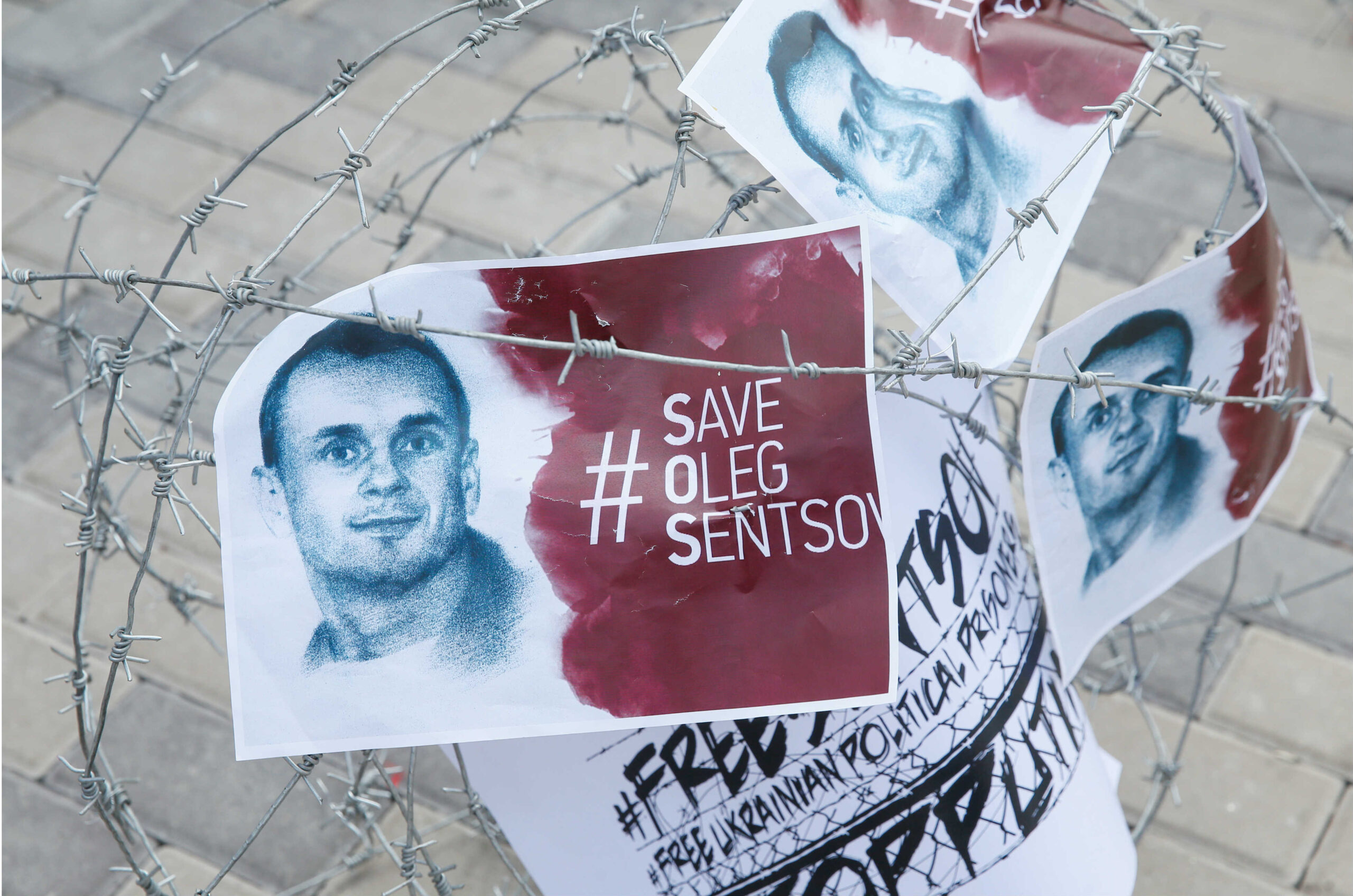Oleg Sentsov and other political prisoners we must fight for
By Alexey Kozlov June 07, 2018

By Alexey Kozlov June 07, 2018

On May 4th, Oleg Sentsov, the film director, announced a limitless hunger strike with the demand to release all Ukrainian political prisoners from Russian prisons (64 people total). On May 31st, Ukrainian activist OlexanderKolchenko announced the hunger strike with a demand to release film director Oleg Sentsov. VolodymyrBalukh, OlexanderShumkov, Stanislav Zimovets also went on hunger strike.
On June 2nd, acts of solidarity both with Sentsov and the political prisoners in Russia with the demands to release them took place in more than 70 cities in Europe, Asia, America and Australia. Updated information on these acts of solidarity can be found here.
All these events have made the issue of political prisoners in modern Russia relevant again.
Who are political prisoners? The definition by the “Memorial” Human Rights Center, which is deeply involved with this issue, is: “Political prisoners are the two categories of people who are subject to criminal prosecution (on a politically motivated basis).
The first group is those oppressed solely for the practice of their civil rights, and for being of a particular nationality, religion or another group, for their beliefs and views (also known as prisoners of conscience, according to Amnesty International).
The second group is those persecuted due to significant violations of the law, selectively, or according to the political motivation of the authorities.
An extensive definition can be found in the Guide to the Definition of a Political Prisoner issue (In Russan).
According to “Memorial”, there are more than 50 political prisoners in Russian prisons today, more than 100 people persecuted for their religious convictions and more than 70 people with clear signs of politically motivated cases. Here you can find the Sentsov's case analysis on the “Memorial” website (In Russian).
The “Bolotnaya Square case” became the first large politically motivated case in modern Russia. The “political prisoners” term returned in current journalistic and activist vocabulary due to this case. The absolute evidence of falsification of the case, inhumane treatment conditions, and the feeling of belonging in every sense of the word (a lot of people participated in the “white‑striped protests” and many of them were on Bolotnaya Square on May 12, 2012) provoked a lot of outrage. This led to a protest and a solidarity campaign, both quite effective and noticeable, being brought to life. It is important to note that many of those affected by the “Bolotnaya Square case” are former political prisoners now engaged in human rights activities and provide assistance to political prisoners and those persecuted for political reasons.
Ivan Nepomnyashiy, ex‑political prisoner:
“It was very important for us to know, – during the trial and after the verdict – that there are many people who consider the case and the sentence to be absurd and fabricated, and that they appealed to the authorities to recognize this and to make us free. And this is the minimum we can do now for Oleg Sentsov, OlexanderKolchenko and many others who are unfairly detained in Russian prisons.”
The ongoing issue has another important aspect: five people went on a hunger strike. The management of Sentsov’s penal colony has already declared that they are ready to use forced feeding and infusions. The hunger strike is one of the extreme measures available for those in prison. It is easy to remember the hunger strike of Anatoly Marchenko, the Soviet dissident, and the tragedy at the end of it. The hunger strike of Vasily Aleksanyan, one of the “Yukos’ case” political prisoners was not successful either. It is still unclear whether the Russian government is ready to react to such actions. But one point is obvious – this situation is very dangerous for the life of political prisoners.
Sergey Sharov‑Delaunay, human rights defender:
“The authorities are not going to drop back, for sure. The only way to force it is to make the intense pressure on this power rise from the inside, and from the outside, all over the world. For the outside pressure, which is really important for Ukrainian authorities, as well, it is necessary for us to support the demands of Oleg Sentsov. This is the starting point for everything. Without it, this demand will never become actual or satisfied.“
That is the reason that urgent and regular acts of solidarity are becoming more important than ever. Join the #SaveSentsov campaign!
By Natalia Arno
August 28, 2018
 Article
Article By Natalia Arno
September 11, 2018
 Article
Article By Maxim Tuula
July 20, 2018

By Natalia Arno
August 28, 2018
 Article
Article By Natalia Arno
September 11, 2018
 Article
Article By Maxim Tuula
July 20, 2018
